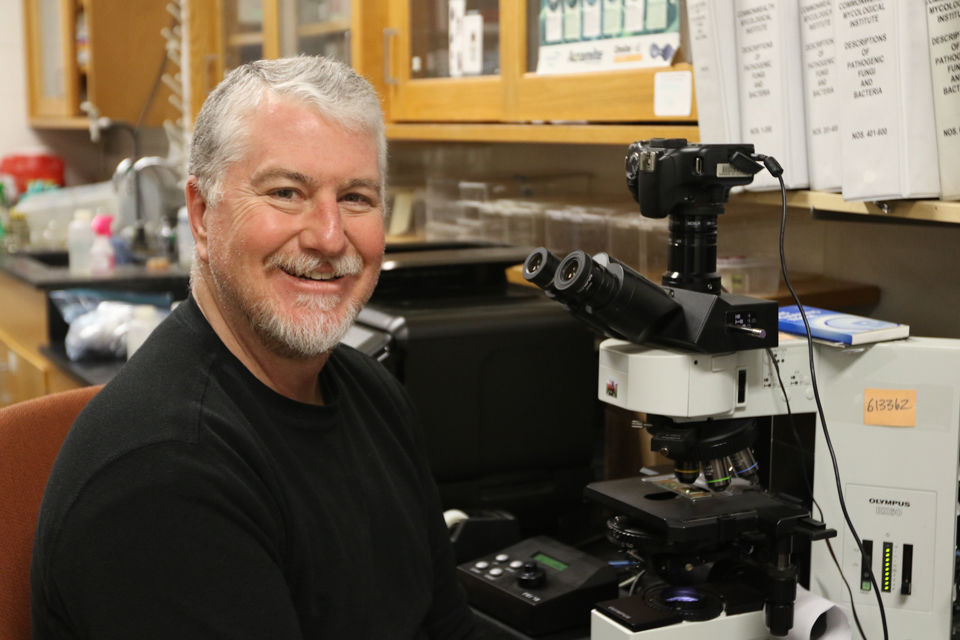By Emily Cabrera
The Southern Integrated Pest Management Center (Southern IPM Center) has inducted University of Georgia Cooperative Extension fruit pathologist Phil Brannen into the Integrated Pest Management Hall of Fame for his significant contributions to commercial fruit growers throughout the southern U.S. over the past 30 years.

Each year, the Southern IPM Center recognizes an industry member for extraordinary contributions to the development and implementation of IPM for the honor.
UGA IPM Communications Coordinator Emily Cabrera spoke with Brannen about the IPM Hall of Fame award and his career with the UGA College of Agricultural and Environmental Sciences.
This is a highly recognized award in the region. What does this induction mean to you?
It’s a nice award to have received after the amount of time I’ve been involved in IPM, both teaching and conducting research. It’s truly a lifetime achievement award, and I see it as a confirmation that I’ve been on the right track.
What do you think contributed to winning this award?
I’ve worked on a lot of different things over the years. I started out in row crops and, since I’ve been at UGA, I’ve been working specifically with fruits. But at every stage, IPM has always been central to my work. Disease work, by its very nature, requires more time and effort be dedicated to true integrated pest management research than other disciplines because many times weeds or insects are the reservoirs or vectors of whatever disease-causing pathogen you’re dealing with. I’ve done a great deal of multidisciplinary research over the years, and I think that’s a large part of what I’m being recognized for with this award.

What motivates you to do this work?
Farming is one of the most difficult professions I can think of relative to all the things you need in order to survive.
It’s always been a stressful occupation, but with all the requirements farmers have to meet, combined with a growing population, complicated supply chains and environmental pressures, it’s hard for farmers to keep up anymore. And unfortunately, we’re losing a lot of our farmers and that expertise over time.
We talk a lot about leaving the land to future generations. I think that means we have to be good stewards of the finite resources we currently have and apply our best research to address some of the root causes of farmer stress. I see it as my duty to use my strengths in the sciences that can be applied to food production to help farmers provide for their families and do better for the world.
Why is IPM important?
A 100 years ago, farmers saw ecosystem interactions, they just didn’t understand what they were looking at. Everything was kind of done in a vacuum.
Over time, we’ve learned that much of what’s happening in our agricultural systems is interrelated. IPM research sets the precedent for collaboration and studying these things together in order to meet our current needs and provide effective tools for future generations of farmers.










